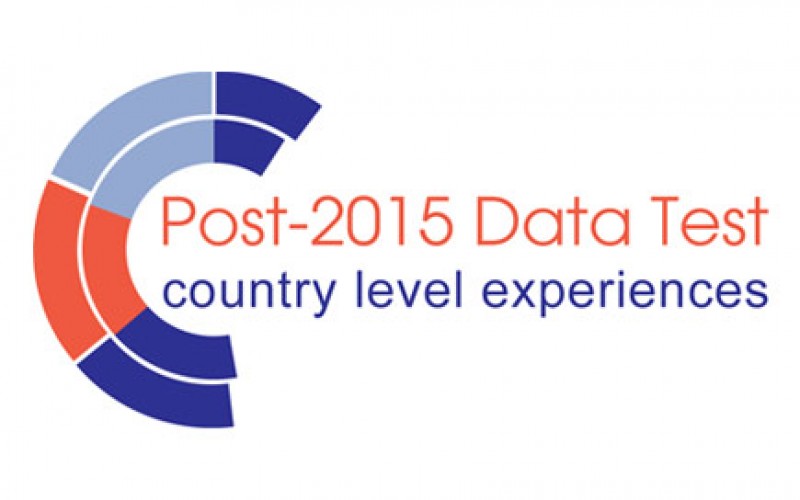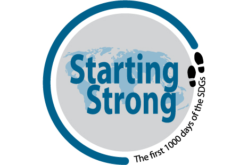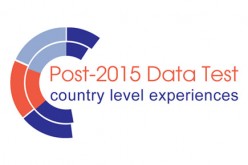In September 2015, the UN General Assembly formally adopted the new development agenda consisting of 17 Sustainable Development Goals (SDGs), aiming to end poverty and hunger, ensure prosperity and reduce inequality, and address climate change and environmental protection by 2030. In this context, the international community has recognized the critical need to improve statistics and information on sustainable development, calling for a “data revolution.” Better data and statistics will help governments track progress, ensure decisions are evidence-based, and strengthen accountability.
Various initiatives related to the data revolution have flourished exploring ways to make reliable data more available, timely and disaggregated, and inform decision making and track development progress. Among these initiatives, the Post-2015 Data Test initiative was launched by the Center for Policy Dialogue (CPD) and Norman Paterson School of International Affairs (NPSIA), in association with Southern Voice on Post-MDG International Development Goals. The initiative considers a set of sustainable development goals, targets and indicators, and examines key data gaps for measuring progress going forward. As part of this seven country study, IPAR, a think tank based in Dakar and Southern Voice member, carried out the Post-2015 Data Test for Senegal. A number of key findings emerged from the Senegal study.
Data availability for SDG monitoring in Senegal is good overall.
Senegal is well-positioned to monitor the SDGs. Institutional reforms to the national statistical system over the past decade have led to improvements in statistical capacity, with significant impacts on the availability of data. The study included an examination of data for a range of SDG areas, including poverty, education, employment and inequality, energy, infrastructure, the environment and disaster resilience, governance and global partnership. We found that data is available for a 91 percent of the 45 indicators that all countries examined as part of the data test. In addition, we selected a number of national indicators that reflect Senegalese priorities for the goal areas noted above. Here, data was available for 64% of indicators. Though data exists, it should be noted that some indicators would need to be derived through relatively simple data manipulations.
But more work will be needed to ensure data availability for SDGs which were not included in the MDGs.
Though data availability is good overall, the availability of data is very weak for goals on governance, employment and the environment. Data are either missing, incomplete or discrepancies exist between data sources. To improve data availability for these goal areas, there is a need to improve coordination between the national statistical office, namely the ANSD (Agence Nationale de la Statistique et de la Démographie), and administrative bodies for a regular production of reliable statistics. On employment, efforts are underway by the ANSD to produce regular high quality data through the first National Survey on Employment launched in July 2015. This effort should improve the weak data collection system regarding employment and labour market data.
The availability of disaggregated data remains a challenge.
A major limitation of data availability is the insufficient disaggregation of data at the local and sectorial levels. Efforts will be needed to fill disaggregated data gaps and ensure that the hope of “leaving no one behind” becomes a reality.
However, there are concrete steps which could greatly improve the availability of disaggregated data.
To improve the availability of data at the local level, the capacities (human, technical and financial) of Regional Offices of Statistics and Demography should be strengthened to meet the disaggregated data needs. In a context of decentralisation in Senegal, available disaggregated data at local levels will ensure reliable evidence for planning, development and evaluation of the implementation of local development policies.
At the sectorial level, more reliable and high-quality disaggregated data could be ensured if the ANSD plays a key coordination role in streamlining and centralising the management of qualified human resources in statistics within line ministries. One of the key measures to ensure statistical human resources for these ministries, in both quantity and quality, is for the ANSD to provide the Cellule d’Etude et de Planification of these line ministries with well-trained staff from ENSAE, the National School for Statistics and Economic Analysis.
Predictable funding is key to improving data quality.
We found that accuracy and reliability and timeliness and punctuality of data are the most problematic aspects of data quality in Senegal. The weakness of these areas, particularly timeliness and punctuality, can be explained by the ANSD’s significant dependence on donor funding and domestic resources from government. National budget cuts and delays in the disbursement of donor finances devoted to statistical operations negatively impact the timeliness and punctuality of data.
Discrepancies between administrative data and survey data for sectors such as education explain weaknesses relative to accuracy and reliability of data. One way to improve accuracy and reliability would be for government ministries, departments and agencies to make better use of the “visa” system within the NSS which requires data producers to collaborate with ANSD when designing surveys.
Donor funding and technical assistance has been a driving force behind improvements within the national statistical system.
The review of the political economy of data in Senegal revealed the important role donors play in improving statistical capacities. For instance, the ANSD acquired statistical tools thanks to technical assistance from the Organisation for Economic Co-operation and Development and the French government’s Cooperation and Cultural Action Service. Bilateral cooperation between Senegal and Brazil led to the use of improved technologies for data collection in the last general census in 2013. This facilitated the availability of preliminary results three months after the end of data collection. Technology has great potential to fill data gaps, since it is useful for efficient data collection, analysis and dissemination.
However, domestic resources are key to ensuring the long-term sustainability of statistical production.
The Senegalese government is increasing its efforts to fund public statistics through domestic resources. For the last general census conducted in 2013, more than 90 percent of the total budget (13.5 billion CFA francs, or roughly USD 27 million) was provided by the Senegalese government. This represent a considerable effort and a positive move of the government towards mobilizing domestic resources for statistics. Strengthening such efforts in the future is key for the government to reduce reliance on external funding, while reinforcing financial autonomy and country ownership.
Senegal’s SDG strategy for implementation should include provisions to address data gaps.
As Senegal moves forward on implementation, the government will need to define a strategy, bearing in mind the Plan Sénégal Emergent (PSE), the flagship policy of Senegal. This strategy should include steps to address data gaps, including the underlying challenges with respect to effectively resourcing the national statistical system. The availability of good quality data will enable priority-setting, evidence-based decision-making and promote accountability for various stakeholders.
Dr. Maam Suwadu Sakho-Jimbira is a researcher at IPAR “Initiative Prospective Agricole et Rurale” and coordinator of the Senegal case study under the Post-2015 Data Test. @souamintou
4,066 total views, 1 views today









